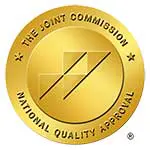Meth Addiction in Los Angeles
Ritz Recovery stands as a beacon of hope in Los Angeles, offering a luxurious and supportive pathway out of meth addiction. Our center understands the complexity of overcoming meth dependency and tailors each treatment to the individual’s journey. With a blend of cutting-edge therapies and compassionate care, we’re committed to not just addressing the addiction but nurturing overall wellness and resilience. In the bustling life of LA, Ritz Recovery is your sanctuary for healing, providing the tools and support needed to rebuild a life of freedom and fulfillment.

Understanding Meth Addiction
The root of addiction often lies in the pursuit of the positive effects brought about by a substance. Crystal meth, also known as methamphetamine, is highly prone to abuse due to its powerful and enjoyable effects. Consequently, quitting methamphetamine use presents a formidable challenge, with a concerning 61% of users experiencing relapse within a year after completing substance abuse treatment.
Despite this disconcerting statistic, there is room for hope for individuals struggling with meth addiction. Though methamphetamine treatment is intricate, it holds the potential for positive outcomes.
What Is Meth?
Methamphetamine, commonly referred to as “crystal meth” or “ice,” is a potent and highly addictive stimulant known for its abuse potential. This drug has a profound impact on the central nervous system, leading to stimulating effects such as heightened alertness, reduced fatigue, increased energy, and enhanced concentration. However, these desirable effects contribute to its addictive nature, as individuals may develop tolerance, necessitating higher doses to achieve the desired effects.
How Meth Is Used
Methamphetamine can be consumed through various methods, including smoking, injection, snorting, or oral ingestion. When methamphetamine is ingested, it acts on the brain by significantly elevating dopamine levels, resulting in sensations of pleasure and intense euphoria.
Signs And Symptoms Of Meth Addiction
Individuals who engage in methamphetamine abuse may exhibit a range of short- and long-term effects, including:
- Heightened energy levels and alertness
- Elevated heart rate and blood pressure
- Feelings of anxiety and paranoia
- Aggressive behavior
- Dilated pupils
- Weight loss
- Tooth decay
Persistent methamphetamine abuse can lead to more severe long-term consequences, such as:
- Psychotic behavior
- Brain damage
- Paranoid or delusional thinking
- Cardiovascular impairments
- Damage to the lungs, liver, and kidneys
- Fatal outcomes
Recovery from meth addiction is attainable with the right support and treatment. With the right help and good support, recovery is possible from meth addiction.
Effects Of Meth Withdrawal
Methamphetamine is a highly addictive stimulant and as a result can make for a difficult withdrawal period.
Meth withdrawal symptoms may include:
- Intense cravings for meth
- Hallucinations
- Depression
- Headaches
- Paranoia
- Extreme fatigue
- Anxiety
- Insomnia
The symptoms can make it difficult for people to stick to their treatment plan and may lead to relapse.
Causes Of Meth Addiction
The causes of meth addiction can vary from person to person, but several common factors may contribute to its development. Here are some of the key factors associated with meth addiction:
History of Trauma or Abuse
Experiences of abuse or trauma can increase the risk of meth addiction. These traumatic events can lead to changes in the brain that make individuals more vulnerable to addiction. Coping difficulties, impulsive behaviors, and feelings of isolation or hopelessness are some of the consequences that can contribute to the development of meth addiction.
Family History of Addiction
There is growing evidence suggesting a genetic component to addiction. If there is a history of meth addiction in the family, it can increase an individual’s susceptibility to developing an addiction themselves.
Poverty or Financial Stress
Poverty and financial stress can contribute to meth addiction in various ways. Economic struggles may lead individuals to seek solace in drugs as an escape from their challenges. The feelings of isolation and desperation associated with poverty can also contribute to drug use.
Mental Health Disorders
Mental health disorders frequently coexist with substance abuse. Studies indicate that around 50% of individuals with substance abuse disorders also have a mental health disorder. Drug abuse can serve as a form of self-medication and coping mechanism for managing the symptoms of mental illness. Methamphetamine, being highly addictive, poses a particularly heightened risk for individuals with mental health disorders.
Contingency Management
Contingency management, or motivational enhancement therapy, has demonstrated effectiveness in treating marijuana addiction. This behavioral therapy approach utilizes rewards, such as vouchers or prizes, to incentivize abstinence from marijuana. Studies have shown that this method can effectively assist individuals in overcoming addiction and remaining engaged in treatment.
Understanding these underlying factors can help in developing comprehensive approaches to address meth addiction and provide appropriate support to individuals seeking recovery.
Treatment For Meth Addiction
Treating meth addiction is crucial to help individuals overcome the severe impact it can have on their health, relationships, and finances. Fortunately, there are effective treatment options available for those struggling with meth addiction.
Tailored treatment plans are essential, as they address the unique needs of each individual. Treatment for meth addiction often involves a combination of counseling, therapy, medication, and support groups.
Cognitive Behavioral Therapy (CBT)
Cognitive Behavioral Therapy, or CBT, is a therapeutic approach widely used in the treatment of meth addiction. CBT helps individuals identify and modify the thoughts and behaviors that contribute to meth use. It also assists in developing healthy coping strategies and problem-solving skills. CBT can facilitate the creation of a supportive network of family and friends to aid in recovery.
The Matrix Model
The Matrix Model is a comprehensive treatment approach that has demonstrated effectiveness in addressing substance abuse, including meth addiction. This model incorporates individual and group therapy, along with various activities and assignments aimed at promoting abstinence and skill development. The Matrix Model has been successfully implemented in treatment programs across the United States.
Contingency Management Intervention
Contingency management (CM) is an evidence-based treatment strategy that employs positive reinforcement to encourage desired changes in behavior. It is often used alongside other treatment modalities like cognitive-behavioral therapy and Twelve-Step facilitation. CM has shown effectiveness in treating various addictions, including methamphetamine addiction.
Finding an Addiction Treatment Center
The addiction treatment process typically involves detoxification, counseling, and behavioral therapy, with the specific approach dependent on the severity of the addiction. Seeking assistance from an addiction treatment center can provide access to resources such as referrals to sober living homes and ongoing support throughout the recovery journey.
Get Help Today
Schedule a confidential assessment with our admissions team.





